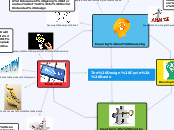por Laura Andra Munar hace 4 años
373
Sample Mind Map
Creating effective educational materials involves developing a principled and flexible framework that aligns with the needs and preferences of learners. It is essential to incorporate the writers'









